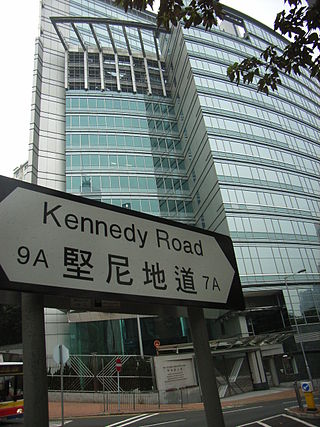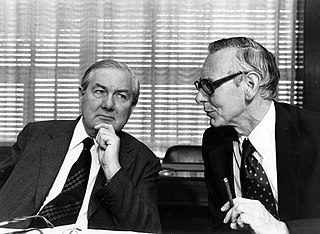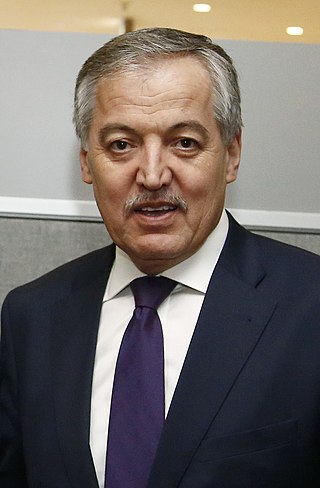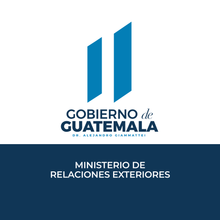Guatemala's major diplomatic interests are regional security and increasingly, regional development and economic integration.

After independence in 1966, Guyana sought an influential role in international affairs, particularly among Third World and non-aligned nations. It served twice on the UN Security Council. Former Vice President, Deputy Prime Minister, and Attorney General Mohamed Shahabuddeen served a 9-year term on the International Court of Justice (1987–96). In June 2023, Guyana was elected as a non-permanent member to the UN Security Council. The country will serve on the Council for a period of two years, beginning in January 2024.

Under the Basic Law, the Hong Kong Special Administrative Region is exclusively in charge of its internal affairs, whilst the central government of China is responsible for its foreign affairs and defence. As a separate customs territory, Hong Kong maintains and develops relations with foreign states and regions, and plays an active role in such international organisations as World Trade Organization (WTO) and the Asia-Pacific Economic Cooperation (APEC) in its own right under the name of Hong Kong, China. Hong Kong participates in 16 projects of United Nations Sustainable Development Goals.

The Organization of American States is an international organization founded on 30 April 1948 to promote cooperation among its member states within the Americas.

In many countries, the ministry of foreign affairs is the government department responsible for the state's foreign policy and relations, diplomacy, bilateral, and multilateral relations affairs as well as for providing support for a country's citizens who are abroad. The entity is usually headed by a foreign minister or minister of foreign affairs. The foreign minister typically reports to the head of government.

The Ministry of Foreign Affairs is an executive department of the Government of Japan, and is responsible for the country's foreign policy and international relations.

The Mexican Secretariat for Home Affairs is the public department concerned with the country's domestic affairs, the presenting of the president's bills to Congress, their publication on the Official Journal of the Federation, and certain issues of national security. The country's principal intelligence agency, CISEN, is directly answerable to the Secretary of the Interior. The Secretary is a member of the President's Cabinet and is, given the constitutional implications of the post, the most important Cabinet Member. Additionally, in case of absolute absence of the President, the Secretary of Interior assumes the executive powers of the President provisionally. The Office is practically equivalent to Ministries of the Interior in most other countries and is occasionally translated to English as Ministry, Secretariat or Department of the Interior.

The Department of Foreign Affairs is the executive department of the Philippine government tasked to contribute to the enhancement of national security, protection of the territorial integrity and national sovereignty, to participate in the national endeavor of sustaining development and enhancing the Philippines' competitive edge, to protect the rights and promote the welfare of Filipinos overseas and to mobilize them as partners in national development, to project a positive image of the Philippines, and to increase international understanding of Philippine culture for mutually-beneficial relations with other countries.

The Ministry of Foreign Affairs, European Union and Cooperation (MAEUEC) is a department of the Government of Spain in charge of planning, managing, carrying out and evaluating the country's foreign and international cooperation for development policies, paying special attention to the ones in relation to the European Union and Ibero-America, as well as coordinating and supervising all actions done in this areas by the other Ministries and Public Administrations. Likewise, it is responsible for promoting international economic, cultural and scientific relationships, taking part in the proposal and application of the migration policy, promoting cross-border and interterritorial cooperation, protecting Spaniards abroad and preparing, negotiating and processing the international treaties which Spain is part of.

The Ministry of Foreign Affairs officialy the Ministry of Foreign Affairs of the Republic of China is a cabinet-level ministry in the government of Taiwan, officially the Republic of China. It is headquartered in the capital Taipei, Taiwan. The incumbent minister is Joseph Wu, who took office in 2018 and is affiliated with the Democratic Progressive Party.

Ministry of Foreign Affairs of Azerbaijan is a Cabinet-level governmental agency of Azerbaijan Republic in charge of conducting and designing the country's foreign policy.

The Ministry of Foreign Affairs of the Republic of Belarus is the Belarusian government ministry which oversees the foreign relations of Belarus.
The Ministry of Foreign and European Affairs of the Republic of Slovenia is an executive department of the Government of Slovenia responsible for relations with other countries and international organisations, monitoring of the international political and economic situation, and strengthening of Slovenia's relations with other countries and international organisations.

The Ministry of Foreign Affairs of the Republic of Indonesia or commonly known by its abbreviation Kemlu, is an Indonesian government ministry responsible for the country's foreign politics and diplomacy. The ministry was formerly known as the Department of Foreign Affairs until 2008 when the nomenclature changed with the enactment of the 2008 State Ministry Act.

The Guatemalan Embassy is the diplomatic representative of the Guatemala Government to the United States Government. Its main functions are to protect the interests of the State and its citizens; keep the channels of communication between governments, encourage and promote trade relations and track identified topics of interest by both countries.

The Ministry of Foreign Affairs of Tajikistan is a government ministry of Tajikistan. It is the central executive authority exercising state administration in the sphere of relations of the Republic of Tajikistan with foreign countries and international organizations. It carries out its activities in cooperation with other central executive bodies, local government bodies, legal entities. The Ministry of Foreign Affairs of the Republic of Tajikistan has the status of a legal entity, its own seal, stamps, and bank accounts. The current Minister is Sirojiddin Muhriddin.

The Secretary of State for the European Union (SEUE) is a senior official of the Ministry of Foreign Affairs, European Union and Cooperation of the Government of Spain. The SEUE is appointed by the Monarch with the advice of the Foreign Minister.

The Secretary of State for Foreign and Global Affairs (SEAEX) is a senior minister of the Ministry of Foreign Affairs, European Union and Cooperation of the Government of Spain. Although he or she has the same rank as the other Secretaries of State of the Department, the SEAEX is considered the second-in-command to the Minister.
The Secretary of State for Global Spain (SEEG) was a senior minister of the Ministry of Foreign Affairs, European Union and Cooperation of the Kingdom of Spain. It was directly responsible of the strategic design of Spain's foreign policy and external action. This involved, among other things, defining the key strategic lines of action, boosting and coordinating Spain's economic and public diplomacy, defending and promoting the image and international reputation of the country, and being in charge of the Ministry's communications. All of this occurred with the support of the rest of the Ministry's bodies and institutions that were linked to it such as the network of Casas, the Fundaciones Consejo or other analogous entities.

Spain–Sudan relations are the bilateral and diplomatic relations between these countries. Sudan has an embassy in Madrid. Spain has an embassy in Khartoum.


















